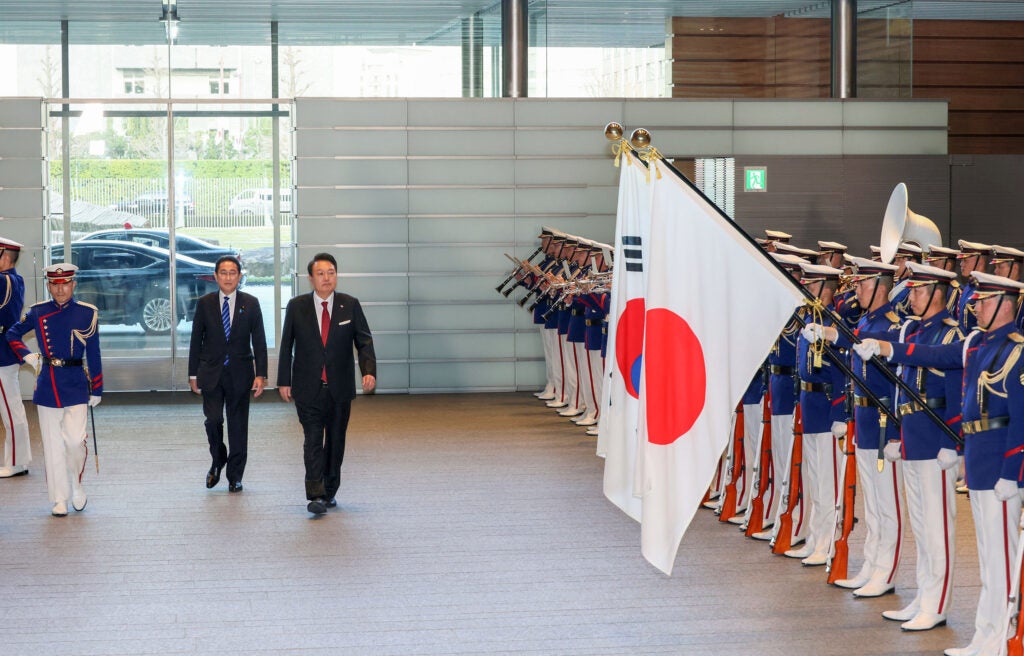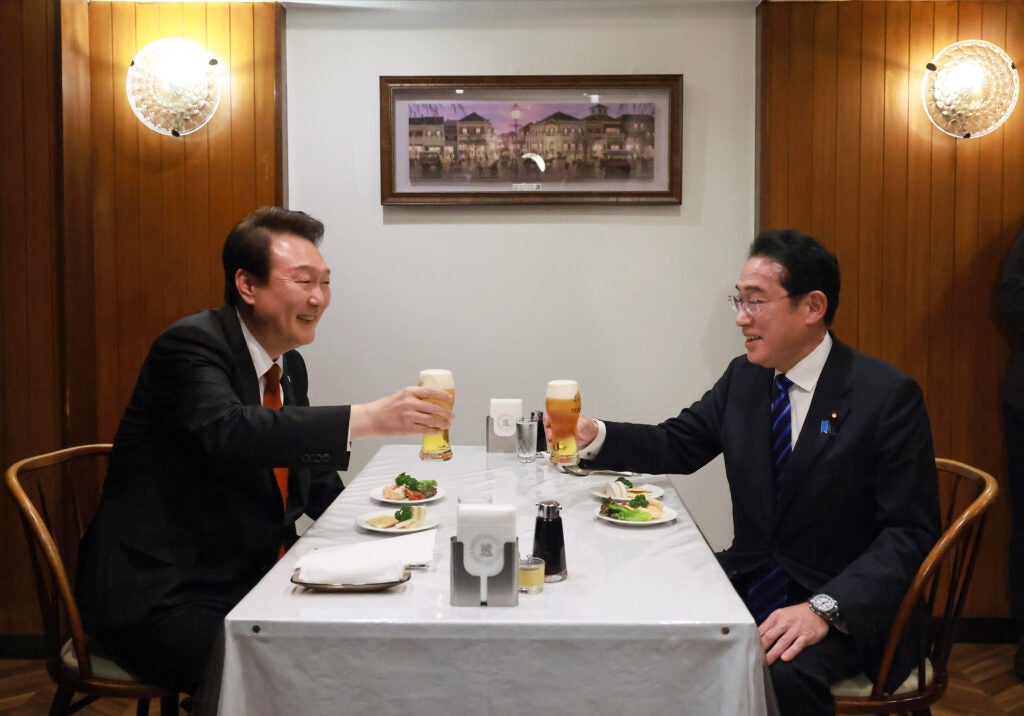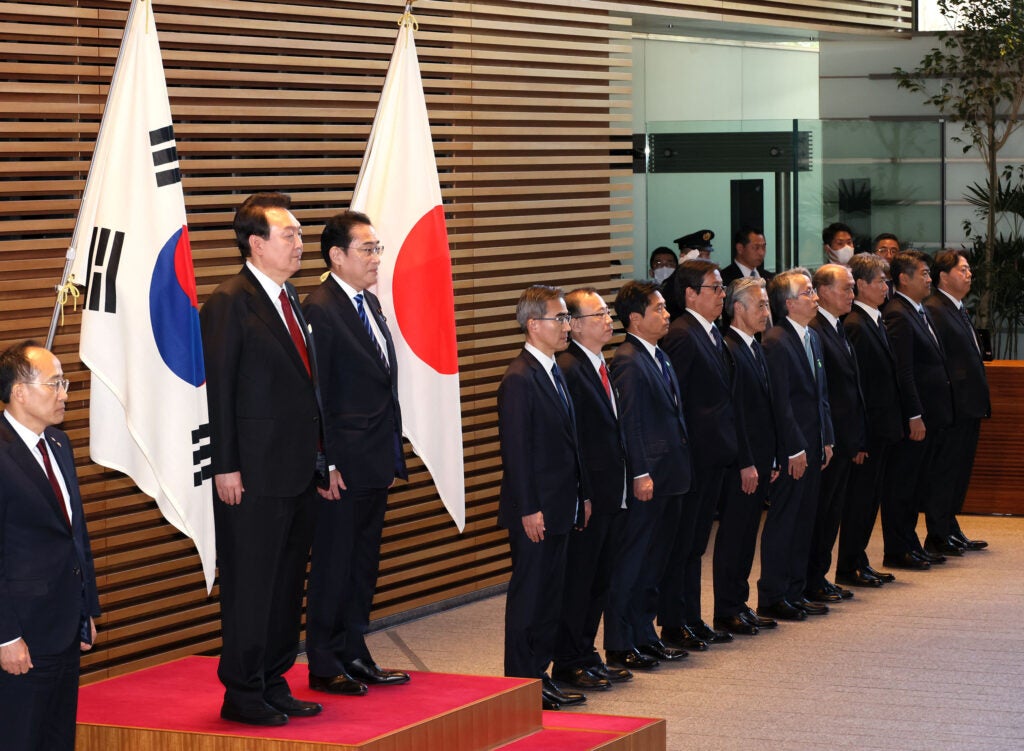Breakthrough in Japan-South Korea ties as Japan lifts ROK Export Controls
On Thursday, 16 March, Toyo announced that it is lifting its heightened export controls against South Korea. Citing security concerns, Japan had initially introduced export controls for three items in July 2019 – all of which were vital for semiconductor production. One month later, Japan removed the Republic of Korea from its list of “Group A countries” which are given preferential treatment when it comes to export procedures. These actions came as part of the Japan-Korea trade dispute which emerged in 2018 as negotiations over the comfort women issue collapsed and Korean courts ordered a number of Japanese companies to pay millions of dollars in compensation to the victims of their World-War-II era forced practices (rulings strongly protested by Tokyo). 2019 was also a year of mass boycotts of Japanese products by the Korean public.
While the division between the two states was lamented by Washington and certainly did not improve either state’s strategic or economic position, the high level of political controversy surrounding the issue slowed resolution significantly.

The final announcement came after a three-day meeting between South Korean president Yoon Suk Yeol and Japanese Prime Minister Fumio Kishida which ran from Tuesday to Thursday. It arguably fulfilled Yoon’s promise to restore ties and came after months of diplomatic overtures, such as reffering to Japan as a “close country” which shares Korean values in the ROK’s larest white paper – a key contrast from the previous version which released under the previous Moon administration and made headlines by dropping the descriptor “partner” for Japan. Facing Yoon, Kishida is reported to have said that:
“This week Tokyo saw its cherry blossom trees blooming a little earlier than usual. I’m very happy to have this opportunity to start a new chapter of a forward-looking future of Japan and South Korea relations on this day when we can feel the arrival of spring,”
Yoon’s statements to the media seemed to reflect a similar sentiment.

In response to Tokyo’s decision, Seoul has pledged to withdraw its compalints to the World Trade Organization over Japanese trade practices. The countries have also agreed to resume a bilateral security dialogue (suspended in 2018) and to normalize the troubled GSOMIA intelligence-sharing pact between Japan and South Korea.
Nevertheless, the war history issues which erupted in 2018 continues to cast a shadow over prospects for cooperation. In a recent poll, nearly two-thirds of Koreans said they do not see a need to speedily improve ties with Japan.

